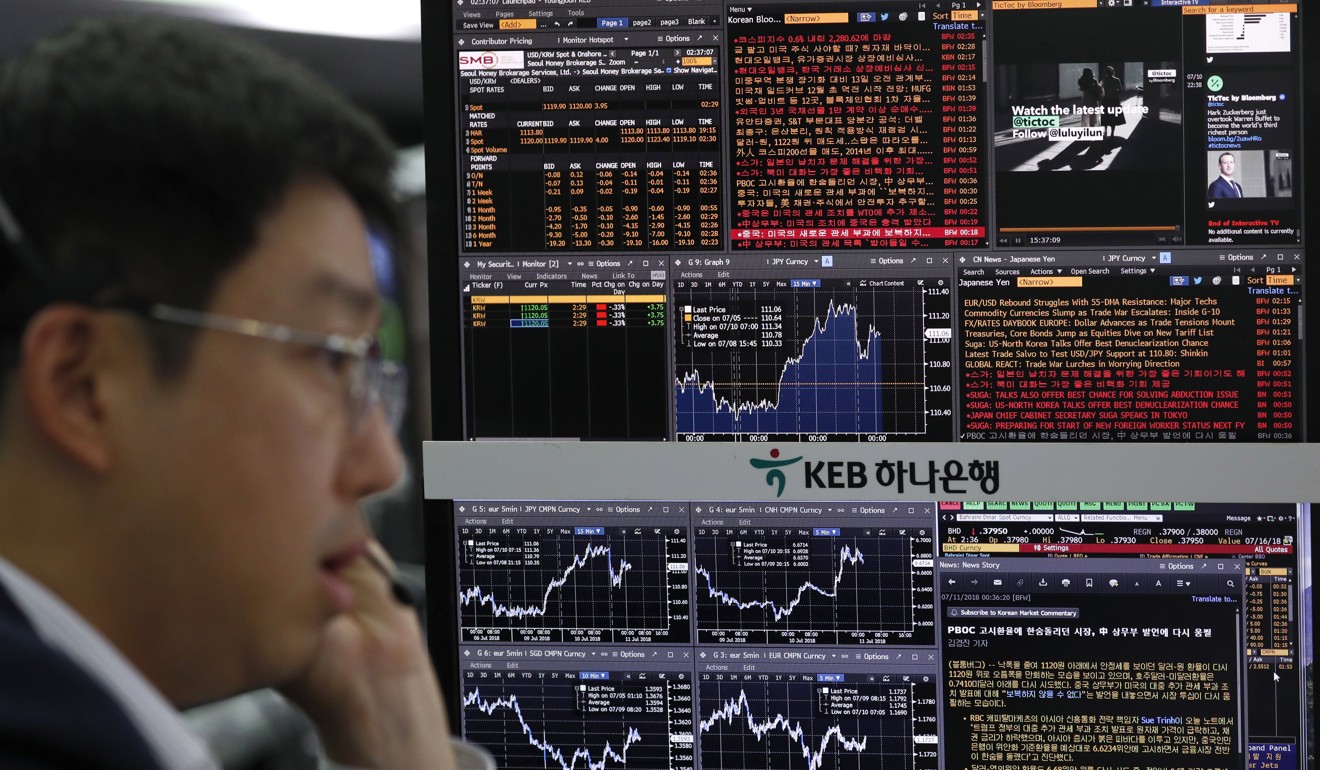
How Trump’s trade war combined with emerging market corporate debt could trigger a perfect storm
Anthony Rowley says emerging markets have amassed high levels of corporate debt, especially foreign currency borrowings, in the past decade. This, together with Trump’s erratic actions on trade, could be the making of a debt crisis
Bonds tend to attract less popular attention than equities, while bank loans are of interest mainly to bankers. Yet debt crises (the great stock crash of 1929 excepted) generally cause greater damage than equity crises.
This is only to be expected, given that the Asia-Pacific has been the world’s fastest-growing region, but debt-leveraged growth can be a mixed blessing.
Global debt has been building for a decade among corporate borrowers, governments, households and financial institutions, due to historically low interest rates and benign economic conditions. Worldwide debt reached a record US$237 trillion at the end of 2017, according to the Institute of International Finance (IIF). Most of it is in advanced economies, but emerging economies have been amassing debt, too.
Watch: IMF chief Christine Lagarde shares her views on trade tensions and rising debt
When the borrowing in foreign currencies is substantial, a squeeze can take on vice-like severity
We may be starting to see a “contagion effect” last witnessed during the 1997 Asian crisis, where nervousness about one market leads rapidly to falls in others, even those that are healthier in terms of economic fundamentals.
The impact on emerging market stock indices is obvious, but the impact on debt securities and bank loans is less so – until borrowers begin to face debt distress or even bankruptcy. Investors do not generally scrutinise debt statistics in the way they do stock indices. The International Monetary Fund is taking the problem seriously now, with improved monitoring, but it may be too late.
In China, corporate debt is around 165 per cent of gross domestic product while in South Korea it is 82 per cent of GDP, in Malaysia, 51 per cent, and India, 38 per cent. Borrowing on the current scale is risky in itself because of the way that a downturn in corporate revenues can damage ability to repay. But when the borrowing in foreign currencies is substantial, a squeeze can take on vice-like severity.

Total corporate borrowing in China has now reached US$21.6 trillion equivalent, according to the IIF. While the bulk of this is in local currency, nearly US$1 trillion is in foreign currencies – mainly dollars that have been moving up sharply against the renminbi.
Relative to the size of GDP, the problem is acute in other Asian countries. China’s dollar-denominated debt to GDP ratio is 6.3 per cent but the ratio in South Korea is 15.1 per cent, followed by Malaysia (11.7 per cent) Thailand (9.5 per cent), Indonesia (9.1 per cent) and India (7.7 per cent).
When global investors pull money out of emerging market securities, corporate access to credit suffers and share prices fall, making it very difficult for firms to roll over even existing debt. A debt crisis can then ensue and that could happen as early as next year.
This, along with tariffs on exports to the US and the threat of slowing world trade, could damage global momentum as business confidence and investment plunge. The contagion could also spread to advanced economies via the banking sector.
The World Bank notes that as “monetary policy normalises among advanced economies”, funding conditions for emerging market companies could “worsen significantly”.
Western investors previously chased yield wherever they could find it to escape low interest rates at home. Thus, disproportionate amounts of debt have been raised by risky emerging market firms.
The irony as investors flee these markets in search of safe havens is that, like equity markets, bond markets in the US and Europe are already oversubscribed and fully valued. Corporate debt in the US has reached 73 per cent of GDP and 103 per cent in the euro zone.
Corporate debt thus looks risky in emerging and advanced markets alike. Trump may learn his lesson only when a debt crisis begins to wash up on his own shores.
Anthony Rowley is a veteran journalist specialising in Asian economic and financial affairs

